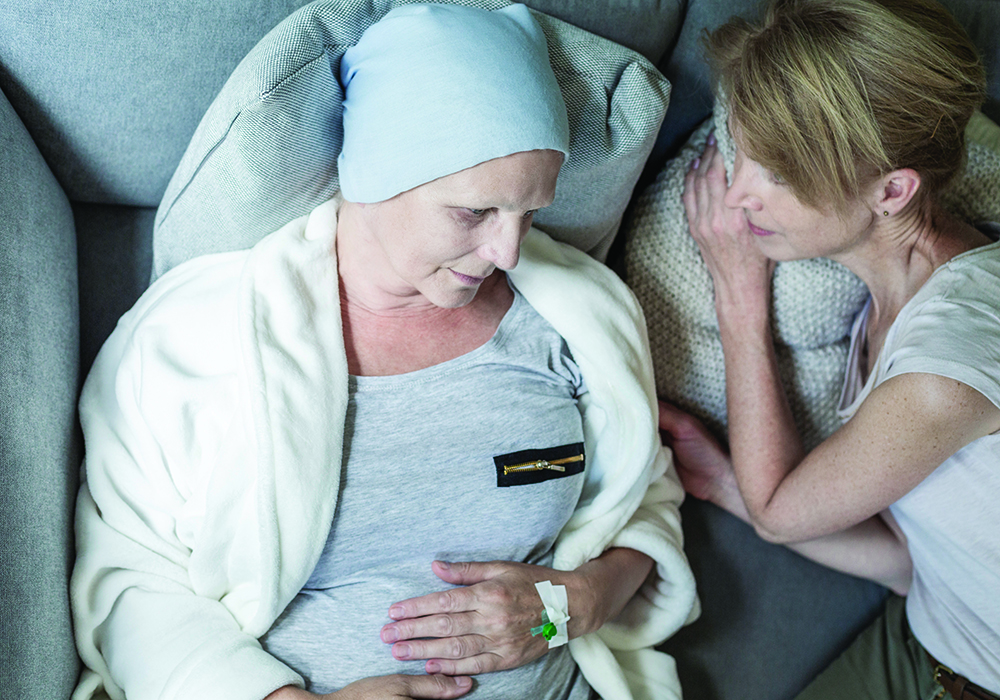Post-traumatic stress disorder (PTSD) can develop after individuals experience an event that goes beyond their usual stressors, affecting a broad range of people. It is associated with exposure to death or threatened death, including a sudden, catastrophic event due to a medical incident. A cancer diagnosis’s significant psychological stressors can affect not only patients, but their caregivers as well.
Caregivers are “chronically exposed to the uncertainty of the evolution of the illness as well as to the psychological and economic impact of cancer and day-to-day management.” In a study conducted with caregivers of hematopoietic cell transplant recipients, 91% reported cancer-related distress and were more likely than the patients to report negative life changes.
Identification
Recognizing PTSD in caregivers and patients can be challenging because the cancer and treatment experience is not an acute event. PTSD symptoms may take months to years to manifest, and many overlap with those of depression and anxiety. As the most frequent contact on the cancer care team for patients and caregivers, oncology nurses can provide ongoing observation and assessment.
Symptoms of anxiety or depression include irritability, poor concentration, and sleep disturbances, whereas PTSD symptoms fall under five distinct categories:
- Reliving the traumatic event through intrusive dreams or memories
- Avoidance
- Increased emotional arousal
- Inability to focus on tasks
- Negative changes in mood and cognition
Nursing Management
No current therapies are specifically designed for PTSD in the cancer setting, but modalities used in other populations have been shown to improve symptoms:
- Teaching caregivers effective coping mechanisms (e.g., relaxation)
- Referring them to community (e.g., cancer caregiver support groups) or online resources (see sidebar)
- Recommending periodically rotating caregivers or seeking respite care
Consult with a social worker, if available, to further assess caregivers’ needs and possible interventions. Nurses can also recommend that caregivers speak to their primary care provider about the feelings they are experiencing or seek professional mental health care. One study showed that telehealth referrals increase caregivers’ likelihood of obtaining mental healthcare services.
During visits, assess how both patients and caregivers are coping with the treatment, side effects, and emotional responses. Lack of communication with healthcare providers may lead to feelings of uncertainty in caregivers. Take cues from the caregiver: are they engaged in the conversation, are they asking questions, and do they seem open to discussion? Include ideas for caregivers when providing patients with coping strategies or other resources.
Caregivers should be part of patient education about recognizing and alleviating stress. Both patients and caregivers must feel supported and have access to resources to improve coping and well-being during the cancer treatment journey.






